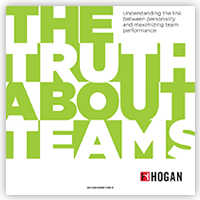 Talk of personal branding on social platforms is rampant. Rarely, however is there mention of how a personal brand can affect engagement at work.
Talk of personal branding on social platforms is rampant. Rarely, however is there mention of how a personal brand can affect engagement at work.
Employee engagement refers to the rational and emotional commitment one has to various aspects associated with the organization where he or she works. An employee’s commitment level translates into discretionary effort and intent to stay, which both affect organizational performance. Additionally, employee engagement is associated with job commitment, lack of burnout and well being. As Dr. Robert Hogan attests, “when employees are engaged, they like their jobs, they work hard at their jobs, they take initiative, and they show loyalty.”
When you brand yourself effectively within a company culture, co-workers and supervisors will have a clearer and more concise understanding of what it takes for you to be successful. Accurately projecting who you are to others will give them the necessary information to help you along the way. Even if they're well-intentioned, peers and supervisors cannot contribute to your engagement or success if they do not have a clear picture of your personality traits and motives.
How can one take control of one’s personal brand and intentionally portray it favorably every day? It all starts with self-knowledge, which is a basic necessity to building your personal brand. Managing your reputation within an organization can only arise from strategic self-awareness.
Here are 3 ways to accurately define and project your personal brand at work.
Define it Simply
Identify what your three core brand attributes are. You should be able to fit them on a Post-it. Start by collecting feedback on how co-workers describe you, your strengths, your development opportunities and some of your top drivers.
Convey it Clearly
Project yourself in a concise manner. Mixed messages will confuse others. Focus on sending out a clear message of how you like to get things done, what makes you get those things done and why you do the things you do in a compact way.
Project it Confidently
Establish yourself as an expert in a relevant field. Once you show competence, you can more easily create a confident presence and build credibility. Become a good source of knowledge for others in a specific area and take control of disseminating that information. By sharing your expertise others will become more aware of what engages you.
If you are not feeling engaged at work, consider what image you are projecting to others. Sharply defining your personal brand could be a step in the right direction.
 It’s safe to say that Sir Richard Branson, the billionaire founder of the Virgin Group, which operates more than 400 companies, knows how to run a company.
It’s safe to say that Sir Richard Branson, the billionaire founder of the Virgin Group, which operates more than 400 companies, knows how to run a company.

 Talk of personal branding on social platforms is rampant. Rarely, however is there mention of how a personal brand can affect engagement at work.
Talk of personal branding on social platforms is rampant. Rarely, however is there mention of how a personal brand can affect engagement at work.

 Many business owners and managers have likely found themselves in a predicament similar to the one Eric Sinoway describes in a
Many business owners and managers have likely found themselves in a predicament similar to the one Eric Sinoway describes in a 